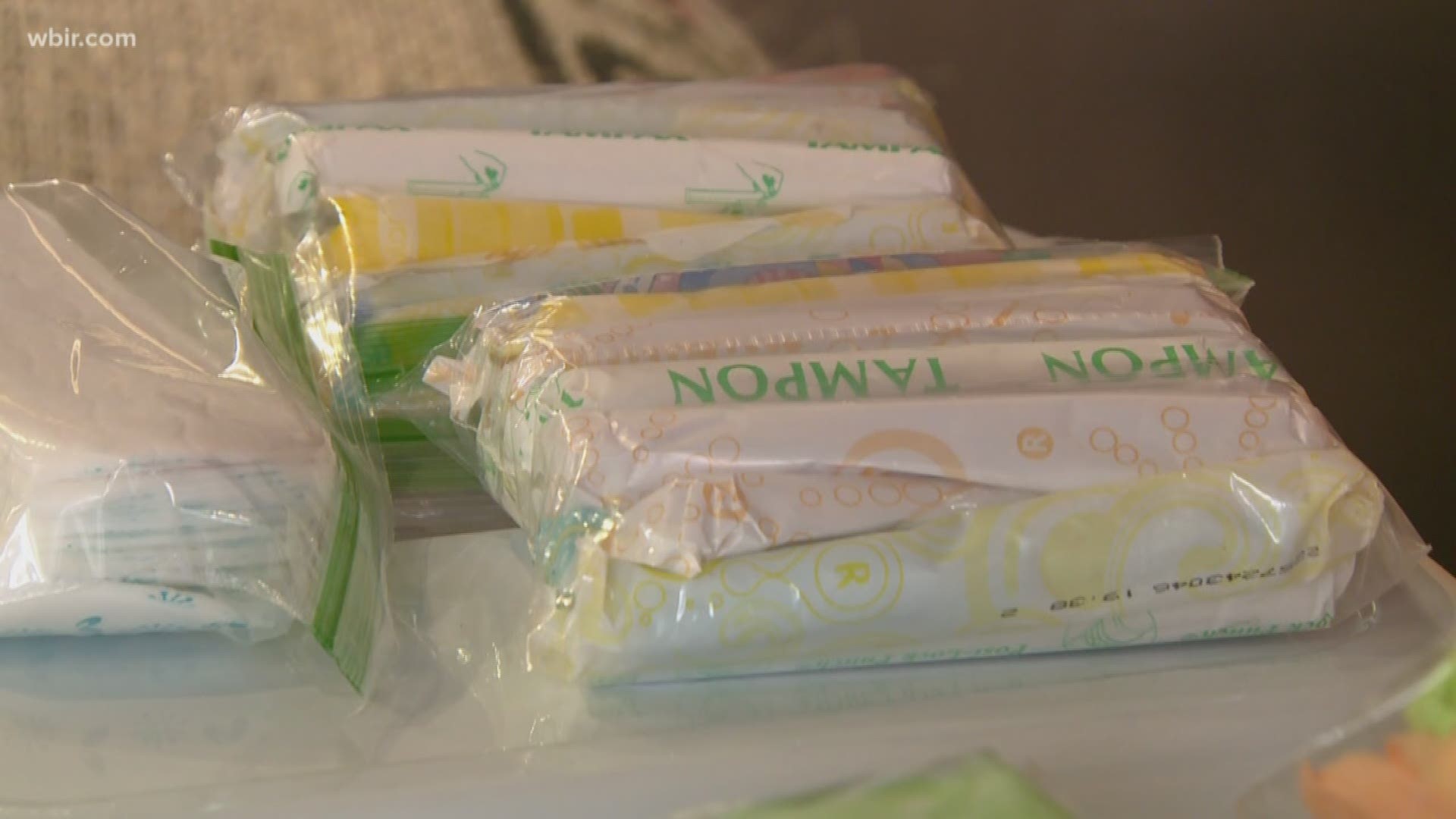KNOXVILLE, Tenn. — According to the 2017 census, 39.7 million people live in poverty in the United States -- and among women and girls, 14% live below the poverty line.
"I'm not surprised by those numbers at all," YWCA director, Kathy Mack said.
Mack said these rates can mean many young girls don't have adequate feminine hygiene products, and that presents a problem.
"There's a huge need for young women to have access to hygiene products, especially during adolescence," she said.
But it's not just a need in the home, it's also a barrier at school.
"One thing we've seen is that when they don't have it they don't go to school, they won't go to school because it's too embarrassing," Mack said.
National data shows it's more common than you might think.
"One in five girls in the United States miss school during their menstrual cycle," said Girls Inc. program director Alanna Krozier.
It's an issue some states are trying to address. Right now about nine states no longer tax tampons. Tennessee had a bill proposing eliminating sales tax on tampons during the previous legislative session, but it stalled in the General Subcommittee of the Senate Finance, Ways, and Means Committee.
However, Tennessee is among many states drafting and passing legislation to provide more access in schools.
"We bring awareness to this on a local and state level," Krozier said.
On July 1, Tennessee schools that fall under the National School Lunch Program will have the go ahead to provide free products in all women's and girl's bathrooms and locker rooms specified for students, not faculty.
More specifically, eligible schools are included under the Community Eligibility Provision, which according to the government's website 'is a non-pricing meal service option for schools and school districts in low-income areas.'
The new law is not mandatory, though. Schools can decide how to move forward in each district.
Krozier said if schools decide to implement it, though, it could really help address this issue. Regardless, she said these needs need to be met no matter what it takes.
"This could majorly help these girls not miss school," Krozier said. "It should not be a choice if a family has to buy feminine hygiene products or put food on the table... This should not be a choice girls have to make."

